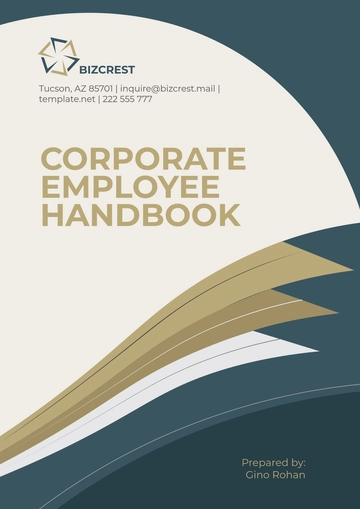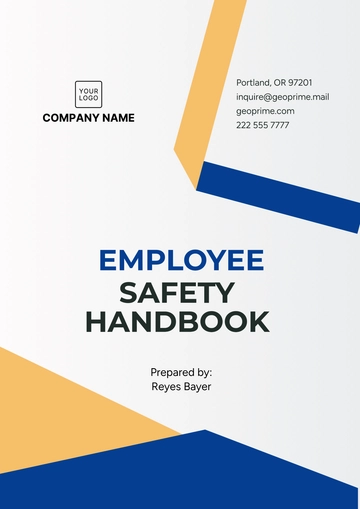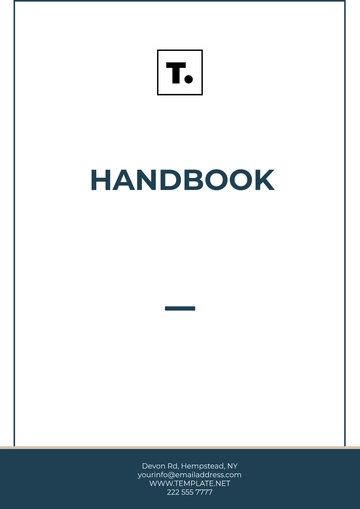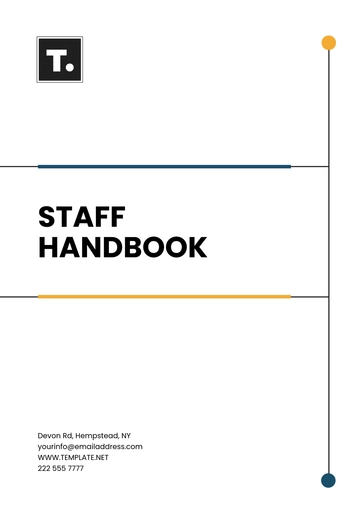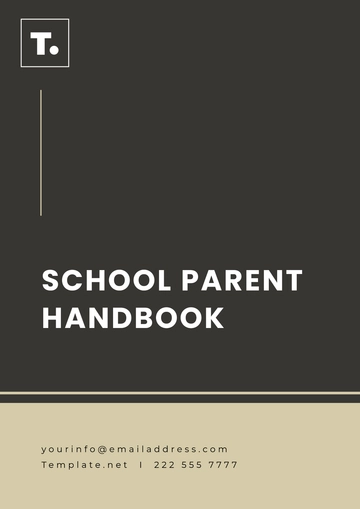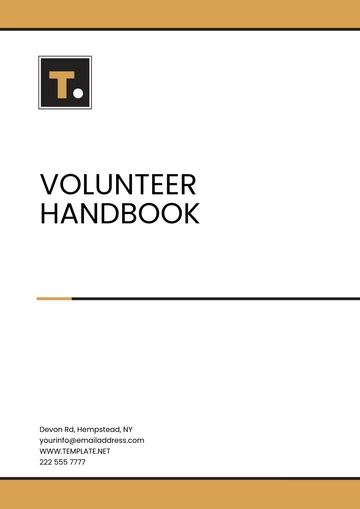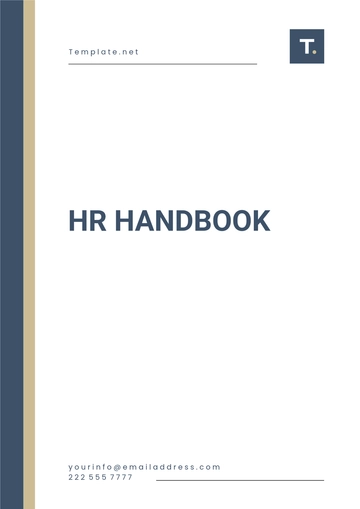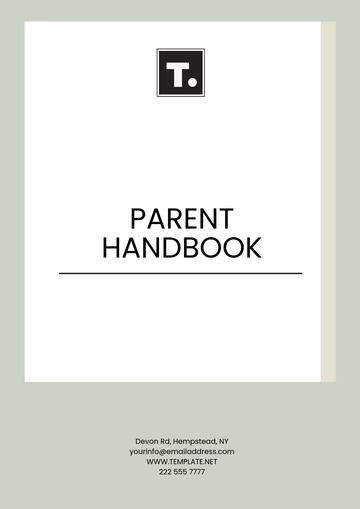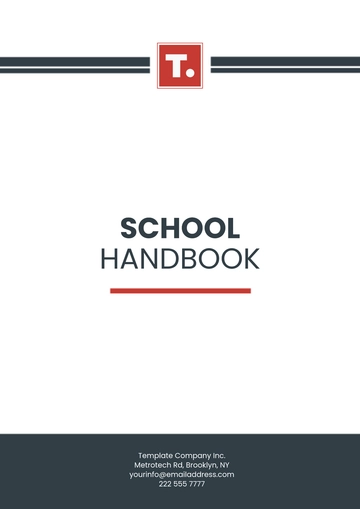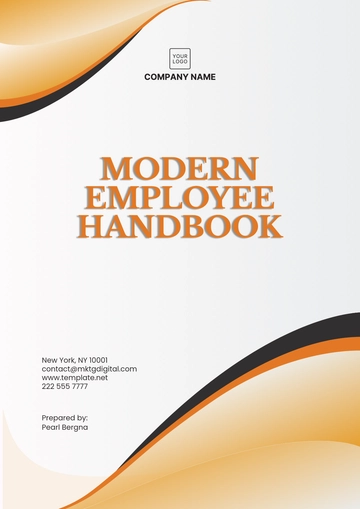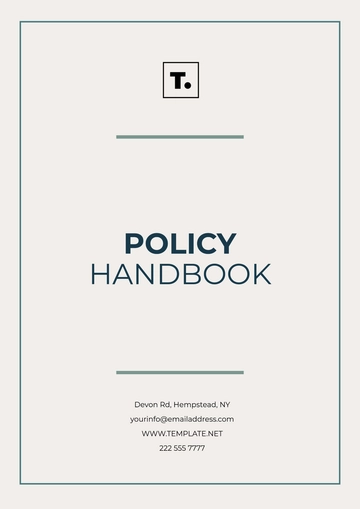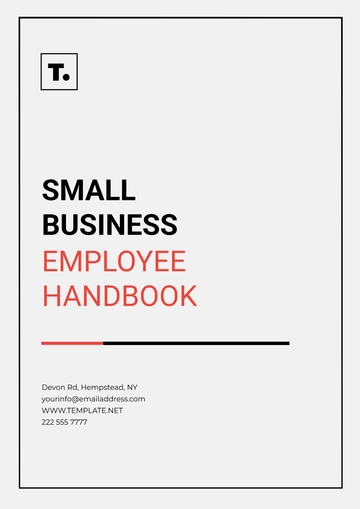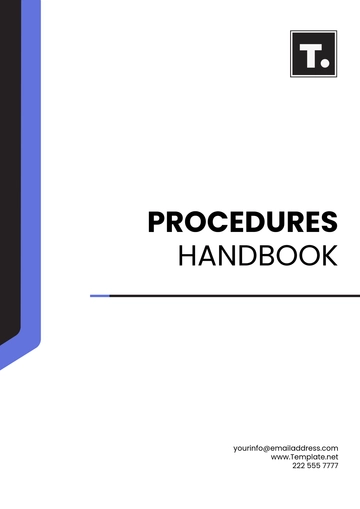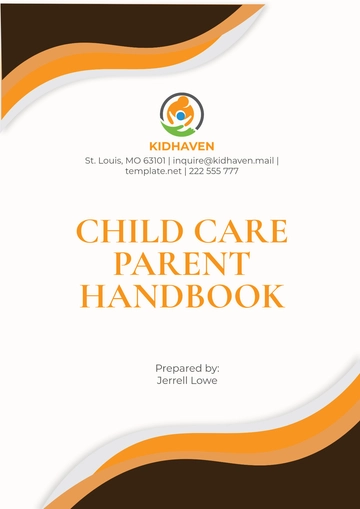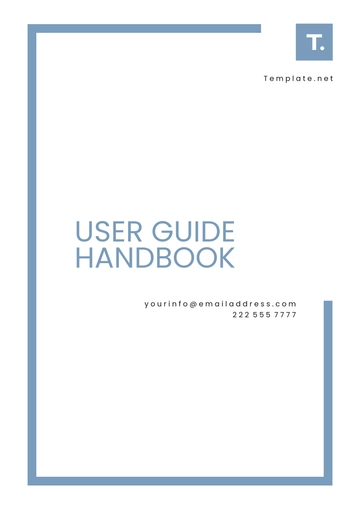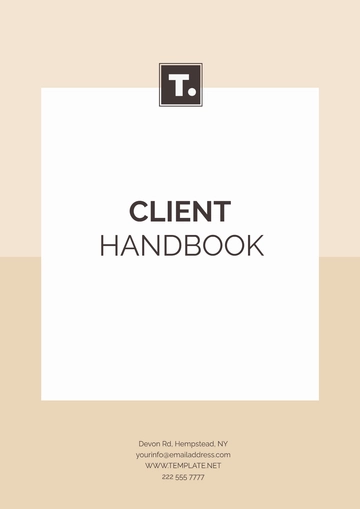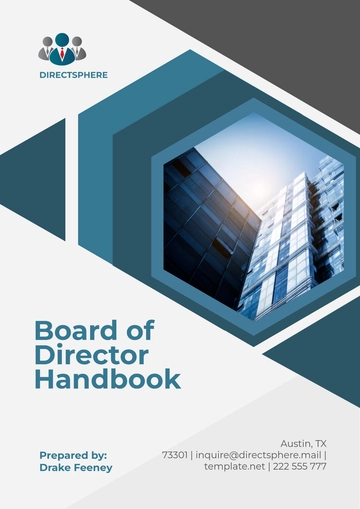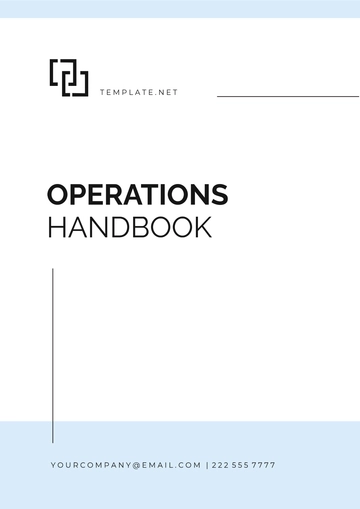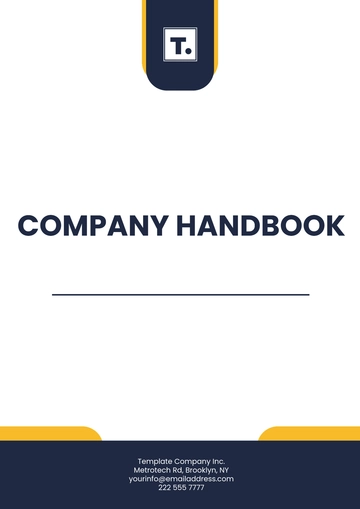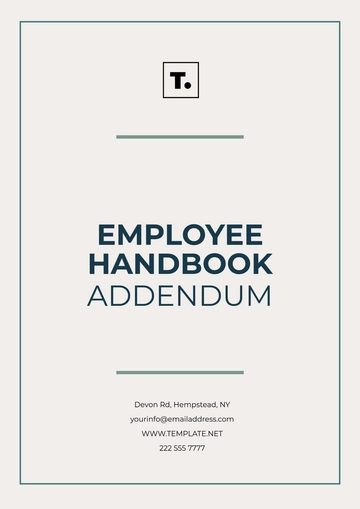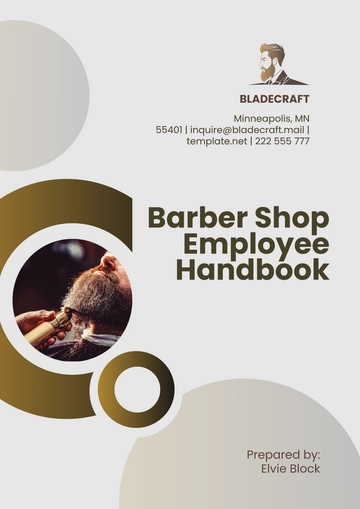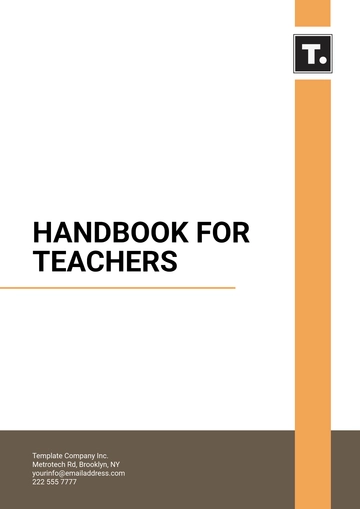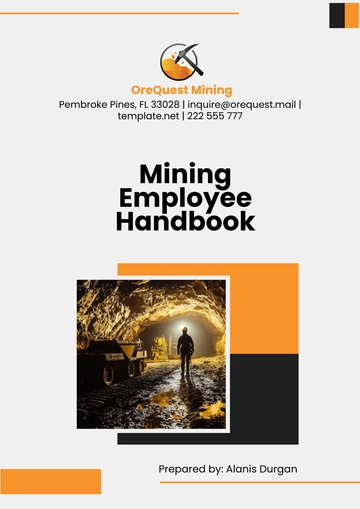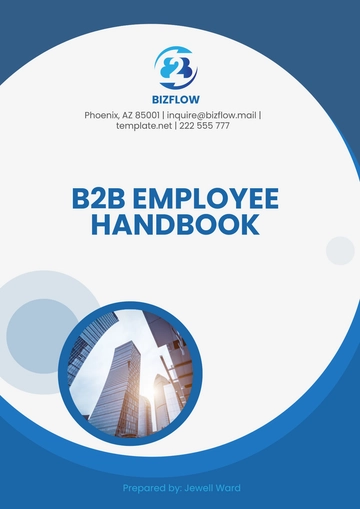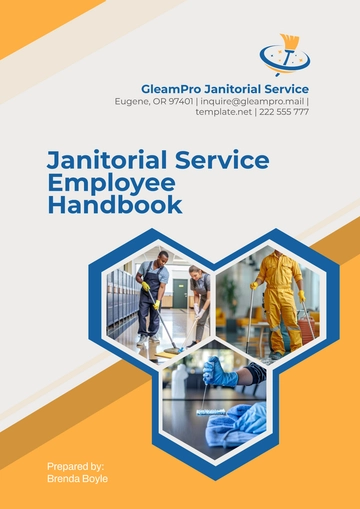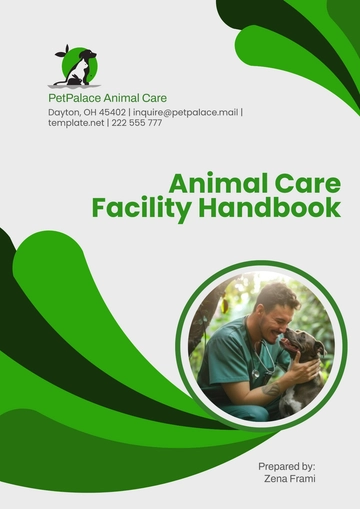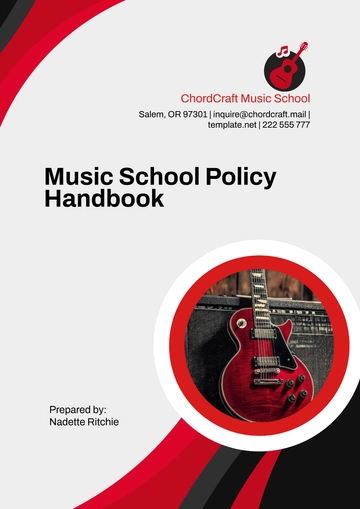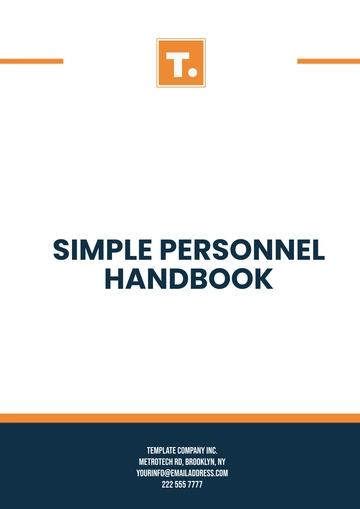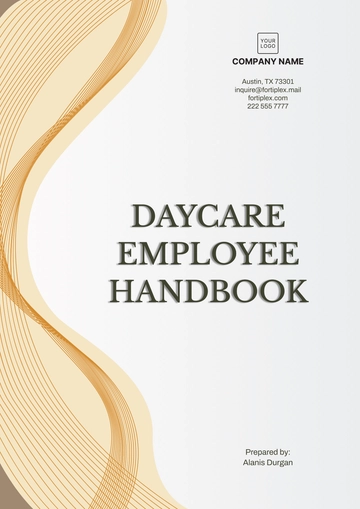Free Law Firm Ethics Handbook
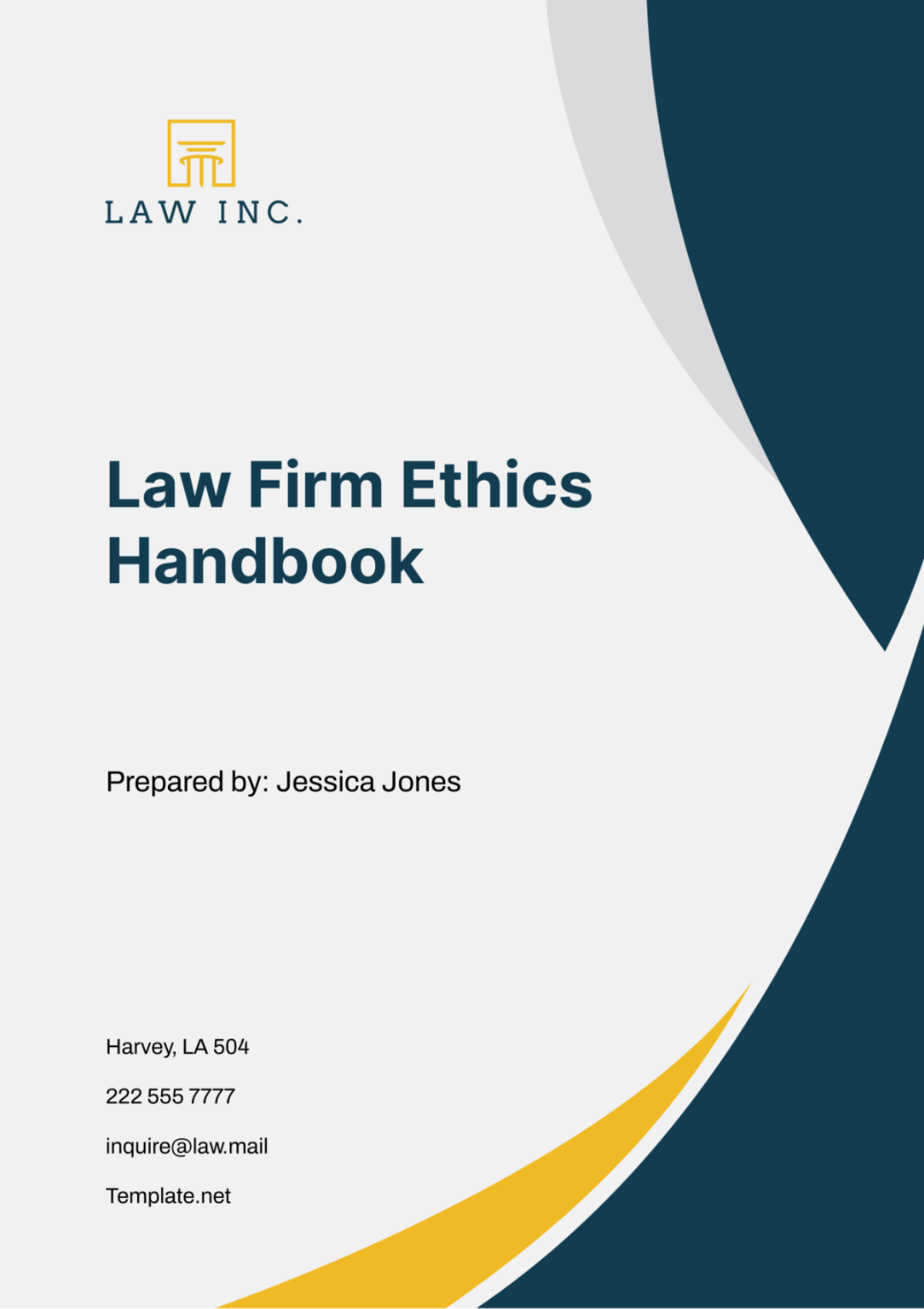
I. Introduction
Welcome to the Ethics Handbook of [Your Company Name], a vital resource crafted to anchor the moral compass of our team. As members of the legal profession, we are entrusted with substantial responsibilities and an unwavering commitment to act with honesty and integrity. This handbook serves as your guide through the ethical dilemmas and decisions you may face in your career at [Your Company Name]. It outlines clear standards and protocols to ensure that our actions align with both our firm’s values and the rigorous demands of the law.
In this handbook, we delineate the foundational ethical principles that each employee, from partners to administrative staff, must uphold to maintain the prestige and integrity of [Your Company Name]. Through scenarios and guidelines, it provides actionable advice on handling common ethical issues such as maintaining client confidentiality, managing conflicts of interest, and the appropriate conduct in professional and personal interactions. Our goal is to cultivate an environment where ethical considerations are at the forefront of every decision we make.
As you integrate into our team and familiarize yourself with our culture, this handbook will be an indispensable part of your professional toolkit. It is not only a set of rules but a reflection of our collective commitment to ethical excellence. We trust that you will use this guide to navigate your role with the highest degree of ethical judgment and professionalism, thus reinforcing our firm’s reputation as a leader in the legal community.
II. Code of Conduct
The Code of Conduct at [Your Company Name] is a blueprint for daily professional behavior and ethical decision-making. It extends beyond mere compliance with legal standards to embody the highest level of professional integrity. Each member of our team is expected to demonstrate respect, fairness, and honesty in all interactions—whether with clients, colleagues, or the court. Our conduct should reflect the dignity of our profession and the trust placed in us by those we serve.
This section of the handbook specifies the behaviors and practices that uphold our firm’s ethical standards. It covers essential areas such as confidentiality, objectivity, and diligence. Adherence to these standards is crucial for fostering a trustworthy and effective legal environment. Failure to comply with these guidelines not only compromises our firm's integrity but also jeopardizes our ability to serve our clients effectively and could lead to significant professional consequences.
We treat any breach of these guidelines with utmost seriousness. Upon detection of any potential ethical violation, we initiate a thorough investigation followed by appropriate disciplinary measures, which can include reprimands, suspension, or even termination. Our commitment to ethical excellence is unwavering, and we hold every team member to these high standards to maintain the honor and reputation of [Your Company Name].
Area of Focus | Description | Expected Behaviors | Consequences of Violation |
|---|---|---|---|
Respect and Fairness | Our commitment to treat all individuals with respect and fairness in all interactions. | Demonstrate politeness and understanding regardless of the situation. Avoid discriminatory practices. | Reprimands Mandatory sensitivity training |
Honesty and Integrity | Upholding the truth and ensuring transparency in all professional dealings. | Provide accurate information. Admit mistakes and seek to rectify them. | Suspension Termination in severe cases |
Confidentiality | Safeguarding sensitive information as per legal and ethical guidelines. | -Secure confidential data. Share information only on a need-to-know basis. | Legal action Professional censure |
Objectivity | Ensuring impartiality and unbiased decision-making in all professional tasks. | Avoid conflicts of interest. Base decisions on evidence and fair reasoning. | Reevaluation of work Disciplinary measures |
Diligence | Commitment to thoroughness and excellence in professional responsibilities. | Perform duties with care and persistent effort. Continuously seek improvement in all areas of work. | Performance improvement plans Reassignment |
Professional Dignity | Maintaining decorum that reflects the dignity of our profession and the trust placed in us by those we serve. | Conduct oneself in a manner befitting the profession both in and out of the workplace. | Warning Professional coaching |
Reporting Violations | Encouraging the reporting of unethical behaviors without fear of retaliation. | Report any suspicions of ethical breaches confidentially. Cooperate in investigations of misconduct. | Protection under whistleblower policies |
III. Conflicts of Interest
At [Your Company Name], recognizing and managing conflicts of interest is central to preserving the ethical integrity of our practice. A conflict of interest occurs when an individual’s personal interests could improperly influence their professional actions or decisions. This section clarifies the types of situations that may lead to conflicts and the stringent measures to address them, ensuring our commitment to impartiality and fairness remains uncompromised.
Employees must report any potential conflicts of interest to [Your Department] without delay. Full transparency is required in disclosing all relevant facts and circumstances that might suggest a conflict, whether actual or perceived. This enables the firm to assess and manage the situation effectively before it affects our operations or client trust. Non-disclosure can lead to serious repercussions, undermining the ethical standards we uphold.
Our procedures for handling conflicts of interest include a review by a designated ethics committee, which evaluates the situation and determines the appropriate course of action. This may involve reassigning responsibilities or withdrawing from certain cases to prevent any biased influence on our legal proceedings. By adhering to these guidelines, we safeguard the integrity of our work and maintain the highest standards of legal ethics at [Your Company Name].
Situation | Description | Reporting Requirements | Management Procedures |
|---|---|---|---|
Personal Financial Interests | Situations where an employee's financial interests could compromise their professional judgment. | Report potential conflicts to [Your Department] immediately with full disclosure of all relevant facts. | - Reassignment of duties - Removal from the case |
Family and Relationships | Cases where familial or personal relationships might influence an employee's decisions or actions at work. | Disclosure of any family ties or personal relationships that could affect impartiality. | - Review by the ethics committee - Possible reassignment |
Secondary Employment | Engagements with other employers or businesses that might conflict with firm interests. | Complete transparency about any secondary employment or business activities. | - Decision on permissibility by ethics committee - Adjustments to responsibilities |
Gifts and Hospitality | Receiving gifts or hospitality that could influence decision-making or professional conduct. | Report all gifts or hospitality that surpass nominal value to ensure transparency. | - Refusal of gifts - Disciplinary actions for non-compliance |
Public Statements and Endorsements | Publicly endorsing products or services that could benefit personally from professional decisions or influence. | Prior approval required for any public endorsements related to the professional field. | - Review of public communications - Guidance or restrictions issued |
IV. Client Confidentiality
Maintaining client confidentiality is a cornerstone of ethical legal practice at [Your Company Name]. Our clients trust us with sensitive information that is crucial to their legal matters, and it is our paramount duty to protect this information from unauthorized access or disclosure. This section details our firm's comprehensive policies designed to safeguard client data, ensuring that all communications and documents are handled with the utmost discretion and security.
Every team member, from attorneys to administrative staff, must adhere to these confidentiality guidelines rigorously. We implement stringent security measures, including secure file storage systems, controlled access protocols, and regular training sessions on data protection. These practices help prevent accidental leaks and deliberate breaches of confidentiality, which could have devastating consequences for our clients and our firm.
Violations of these confidentiality policies are treated with the highest severity and may result in disciplinary action, including dismissal. Additionally, breaches could expose [Your Company Name] and the involved individuals to legal liabilities and damage our reputation irreparably. Therefore, we hold every employee accountable for upholding these standards and contributing to a culture of confidentiality that defines our professional integrity and success.
Aspect | Policy Details | Implementation Strategies | Consequences of Violation |
|---|---|---|---|
Secure Storage | All client data must be stored in secure, encrypted file systems. | Utilize industry-standard encryption and secure storage solutions to protect client information. | Dismissal and possible legal action for breaches. |
Access Control | Access to sensitive information is strictly controlled and monitored. | Implement controlled access protocols with audit trails to track who accesses client information. | Severe disciplinary actions and reevaluation of access rights. |
Data Handling | Handling of client information must adhere to strict guidelines to avoid accidental disclosures. | Conduct regular training sessions on proper data handling and sharing protocols. | Mandatory retraining and potential suspension for accidental leaks. |
Communication Security | All communications containing client information must be conducted through secure channels. | Use encrypted communication tools and ensure all employees adhere to security protocols. | Disciplinary actions and review of communication practices. |
Regular Audits | Conduct regular audits to ensure compliance with confidentiality policies and to identify any potential risks. | Schedule periodic reviews of storage and access logs to detect unauthorized access or policy violations. | Enhanced monitoring and additional training for the involved teams. |
Breach Protocol | In the event of a data breach, a specific protocol must be followed to mitigate damages. | Immediate reporting to [Your Department], followed by an assessment and containment measures. | Legal consequences, including fines and damages for negligence. |
V. Handling Ethical Dilemmas
Ethical dilemmas are an inevitable aspect of legal practice, demanding thoughtful consideration and ethical analysis. This section of the handbook provides a structured approach for navigating such challenges, empowering employees to make principled decisions aligned with [Your Company Name]'s ethical standards and legal obligations. It underscores the importance of seeking guidance and support from experienced legal counsel or ethics officers within the firm when faced with complex moral quandaries.
Our methodology for addressing ethical dilemmas emphasizes a systematic process of evaluation and reflection. Employees are encouraged to identify the key ethical considerations at play, assess the potential consequences of various courses of action, and consider alternative perspectives. By weighing these factors thoughtfully and objectively, individuals can arrive at a decision that upholds both our firm's values and our professional responsibilities to clients and the legal system.
Open communication and consultation are essential components of our approach to handling ethical dilemmas. Employees are encouraged to engage in discussions with colleagues, supervisors, or designated ethics advisors to gain insight and perspective on challenging situations. This collaborative approach fosters a culture of ethical awareness and accountability, ensuring that all decisions reflect the highest standards of integrity and professionalism expected at [Your Company Name].
Step | Description | Methodologies | Support Systems |
|---|---|---|---|
Identification | Recognize and define the ethical dilemma. | Employees are trained to identify the key ethical considerations at play in different scenarios. | Consultation with ethics officers or legal counsel. |
Evaluation | Assess the potential consequences of various actions. | Consider the impact of decisions on all stakeholders, including clients, the firm, and the legal system. | Workshops and training sessions on ethical decision-making. |
Reflection | Reflect on the firm’s values and professional responsibilities. | Employees are encouraged to align their decisions with the firm’s core values and ethical guidelines. | Access to historical case studies and ethical guidelines. |
Consultation | Seek advice and perspectives from others. | Engage in open discussions with colleagues, supervisors, or designated ethics advisors to gain insights. | Established channels for advice and support within the firm. |
Decision-making | Make a final decision based on thorough analysis and consultation. | Use a systematic approach to weigh all factors and arrive at a well-informed decision. | Decision-making frameworks and tools provided by the firm. |
Documentation | Document the dilemma and the decision-making process for accountability. | Maintain records of how ethical dilemmas are handled, including the rationale for decisions made. | Secure and confidential recording systems. |
VI. Reporting Misconduct
A vital component of fostering an ethical workplace is ensuring there are clear and secure channels for reporting misconduct. This section outlines the procedures for reporting ethical breaches within [Your Company Name]. It ensures that all reports are handled with discretion and professionalism, protecting the rights of all involved parties and promoting a culture that prioritizes ethical behavior over silence.
Step | Description | Procedures | Support and Protection |
|---|---|---|---|
Awareness | Ensure all employees are aware of what constitutes misconduct and their role in reporting. | Provide regular training on recognizing and reporting ethical breaches. | Informational resources and confidential consultation channels. |
Reporting Channels | Offer multiple secure and accessible ways to report misconduct. | Implement hotlines, digital forms, and direct access to ethics officers for reporting purposes. | Encouragement of use without fear of retaliation. |
Confidentiality | Maintain confidentiality of all reports to protect the identities of the reporters and the accused until verified. | Handle all reports under strict confidentiality, ensuring that details are shared only with necessary personnel. | Strict adherence to privacy protocols. |
Investigation | Conduct thorough and impartial investigations into reported misconduct. | Assign trained ethics officers or a designated committee to investigate reports promptly and impartially. | Transparent processes with regular updates to involved parties. |
Resolution | Decide and implement appropriate actions based on investigation findings. | Apply disciplinary measures, counseling, or other resolutions based on the severity and facts of the case. | Consistent application of firm policies to all employees. |
Feedback | Provide feedback to the reporter and involved parties about the investigation's outcome. | Inform the reporter and others directly affected about the resolution and any actions taken. | Ensure ongoing support and adjustments to policies as needed. |
VII. Revision History
Version | Date | Changes | Updated by |
|---|---|---|---|
1.0 | [Initial Release Date] | Initial Release | [Your Name] |
This handbook is intended to be a living document, subjected to periodic reviews and updates to adapt to new legal requirements and best practices in the field of law. It is each individual's responsibility to remain informed and comply with the updated guidelines as they are communicated within the firm.
- 100% Customizable, free editor
- Access 1 Million+ Templates, photo’s & graphics
- Download or share as a template
- Click and replace photos, graphics, text, backgrounds
- Resize, crop, AI write & more
- Access advanced editor
At Template.net, we offer the Law Firm Ethics Handbook Template, a complete, editable and customizable solution designed for legal professionals. Tailor-fit this guide to showcase your law firm's principles easily editable in our Ai Editor Tool. This tool aspires to streamline your process and uphold your firm's reputation. Be captivating with our template; let it enhance your professional integrity and showcase the ethical backbone of your practice.
